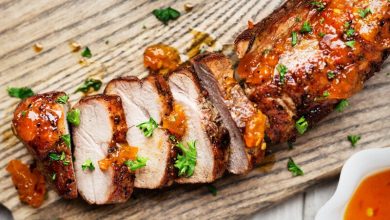Cashew “ricotta” cheese is a popular dairy-free alternative to traditional ricotta cheese made from cashew nuts. It’s commonly used in vegan and dairy-free recipes as a creamy and versatile substitute. Let’s delve into its details, including its history, components, preparation steps, and time needed to make it.
What is Cashew “Ricotta” Cheese?
Cashew “ricotta” cheese is a vegan cheese substitute made from raw cashew nuts. It mimics the texture and consistency of traditional ricotta cheese while being entirely plant-based. It’s used in various vegan and dairy-free recipes, including lasagna, stuffed pasta, dips, and spreads.
History:
The history of cashew “ricotta” cheese is closely tied to the rise of plant-based and vegan diets in recent decades. As people started seeking dairy-free alternatives due to dietary restrictions, health reasons, or ethical concerns, cashew “ricotta” cheese emerged as a delicious and creamy substitute.
Components:
The main components of cashew “ricotta” cheese include:
-
Cashews: Raw cashew nuts are the primary ingredient. They provide a creamy texture and a mild, nutty flavor.
-
Lemon Juice: Lemon juice is used to add acidity and tanginess to mimic the flavor of traditional ricotta cheese.
-
Nutritional Yeast: Nutritional yeast adds a cheesy flavor to the “ricotta” and is a source of essential vitamins and minerals.
-
Salt: Salt enhances the flavor and helps balance the sweetness of cashews.
-
Water: Water is used to adjust the consistency and creaminess of the “ricotta.”
Steps to Prepare Cashew “Ricotta” Cheese:
Here’s a step-by-step guide to making cashew “ricotta” cheese:
Ingredients:
- 1 cup raw cashews (soaked for at least 4 hours or overnight)
- 2 tablespoons lemon juice
- 2 tablespoons nutritional yeast
- 1/2 teaspoon salt
- 1/4 cup water (adjust for desired consistency)
Instructions:
-
Soak Cashews: Place the raw cashews in a bowl and cover them with water. Let them soak for at least 4 hours or overnight to soften.
-
Drain and Rinse: After soaking, drain and rinse the cashews thoroughly.
-
Blend: In a food processor or high-speed blender, combine the soaked cashews, lemon juice, nutritional yeast, salt, and water.
-
Blend Until Smooth: Blend the mixture until it becomes smooth and creamy. You may need to stop and scrape down the sides of the blender to ensure everything is well combined.
-
Adjust Consistency: If the “ricotta” is too thick, you can add a bit more water and blend again until you reach your desired consistency.
-
Taste and Adjust: Taste the cashew “ricotta” and adjust the salt or lemon juice if needed to suit your preferences.
-
Use as Desired: Your cashew “ricotta” cheese is now ready to use in your favorite recipes.
Preparation Time:
The total preparation time for cashew “ricotta” cheese is approximately 10-15 minutes, excluding the soaking time for cashews. Soaking typically takes 4 hours or overnight, depending on your preference.
Cashew “ricotta” cheese is a versatile and delicious dairy-free option that can be used in a variety of dishes. It’s rich, creamy, and has a slightly nutty flavor, making it a great choice for both vegans and those looking for dairy alternatives. Enjoy experimenting with it in your favorite recipes!
Certainly! Here are the nutrition facts and health information for Cashew “Ricotta” Cheese based on a typical recipe:
Nutrition Facts (Per Serving – 1/4 cup):
- Calories: Approximately 100 calories
- Total Fat: 8 grams
- Saturated Fat: 1.5 grams
- Trans Fat: 0 grams
- Cholesterol: 0 milligrams
- Sodium: 150 milligrams
- Total Carbohydrates: 5 grams
- Dietary Fiber: 1 gram
- Sugars: 1 gram
- Protein: 4 grams
- Calcium: 10% of Daily Value (DV)
- Iron: 6% of DV
- Potassium: 110 milligrams
- Vitamin C: 6% of DV
- Folate: 5% of DV
Health Information:
-
Low in Saturated Fat: Cashew “Ricotta” Cheese is low in saturated fat, making it a heart-healthy option when compared to traditional dairy ricotta cheese.
-
Cholesterol-Free: It is completely cholesterol-free, which is beneficial for heart health.
-
Good Source of Healthy Fats: Cashews used in this recipe provide healthy monounsaturated and polyunsaturated fats that can support overall health.
-
Protein: It contains a moderate amount of protein, making it suitable as a protein source in vegan and plant-based diets.
-
Calcium: While it contains some calcium, it may not be as rich in calcium as dairy ricotta. However, it can still contribute to your daily calcium intake.
-
Iron: Cashew “Ricotta” Cheese provides some iron, which is essential for maintaining healthy blood.
-
Vitamin C: The addition of lemon juice contributes to the vitamin C content, providing a small boost to your daily intake.
-
Low Sugar: It contains minimal added sugars, making it a suitable choice for those watching their sugar intake.
-
Dietary Fiber: It offers a small amount of dietary fiber, which can aid in digestion.
-
Nutritional Yeast Benefits: The use of nutritional yeast adds a cheesy flavor and provides essential B vitamins, such as B12, which is important for vegans and vegetarians.
Keep in mind that these nutritional values may vary slightly based on the specific ingredients and proportions used in your homemade cashew “ricotta” cheese recipe. However, overall, it is a nutritious and flavorful dairy-free alternative with several health benefits.



